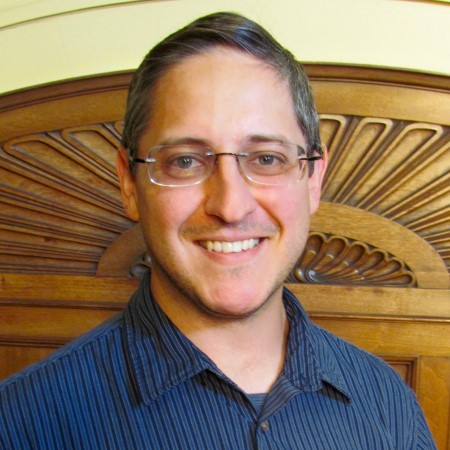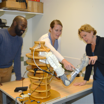A CfNN Focus Area: Research in Restoring Communication and Mobility aims to improve both independence and interactions for Veterans with severe communication or mobility impairment resulting from injury or disease, including amyotrophic lateral sclerosis (ALS), spinal cord injury (SCI), visual impairment, stroke, seizure disorders, and disorders of consciousness.
With the direct research participation of Veterans and others, this research focuses on the development, translation, and deployment of innovative neurotechnologies and novel medical approaches that can help surmount the daily challenges associated with severe disability.

Some Communication and Mobility Research Projects:
Recovering functional arm movement and/or grasping is a high priority for individuals with tetraplegia. The BrainGate neural interface is being developed to enable Veterans and others with paralysis to harness the brain activity associated with attempted movements to directly command reach and grasp movements of assistive robotics, advanced prosthetic arms, or even their own paralyzed arm and hand. Investigators: Leigh Hochberg, MD, PhD and John Simeral, PhD
Spinal cord injury can prevent brain commands from reaching the lower limbs, resulting in paralysis. The long-term goal of Brain-Spine Interface research is to restore walking in Veterans and others with lower limb paralysis by stimulating the spinal cord to achieve coordinated leg movements activated by walking intentions from the brain. Investigator: David Borton, PhD
Many aids are available for individuals with blindness, but the challenges of navigating and functioning in unfamiliar or variable spaces can impose significant limitations on daily activities for those living with severely impaired vision. Working with Veterans with Blindness, we are in the early stages of developing a wearable assistive visual prosthesis with artificial intelligence and pattern recognition to provide auditory reporting of text and signs, to search for and locate objects, and to provide safe guidance through unfamiliar spaces. Investigators: Michael Paradiso, PhD and David Rosler, MS











